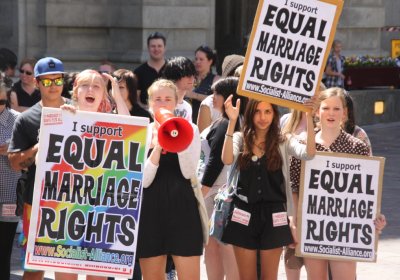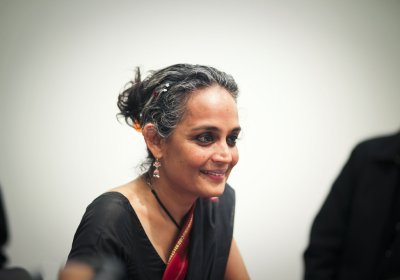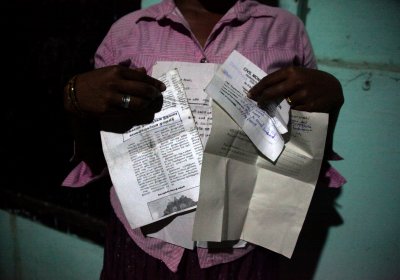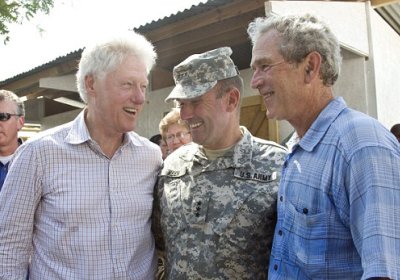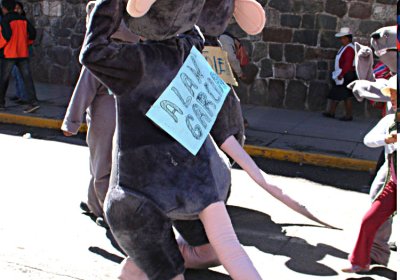The National Popular Resistance Front of Honduras (FNRP) received the annual International Herbert Anaya Human Rights Prize in El Salvador, awarded by human rights organisations. The FNRP struggles against the US-backed Honduran dictatorship that came to power in a military coup last year.
Gloria Anaya, the oldest daughter of the slain human rights activist for whom the award is named, told Prensa Latina the award ceremony took place during the closing of the Seventh International Congress on Human Rights at the University of El Salvador.
Democracy
See a photo slilde show of the rally here. Hundreds of people took to the streets of Perth for the fourth time this year to protest against the federal government’s same-sex marriage ban. The November 6 rally heard from speakers including Kitty Hawkins representing GALE (Gay and Lesbian Equality), Rebecca Leighton from the Greens and a representative from the State School Teachers' Union.
World renowned novelist and global justice activist Arundhati Roy is facing escalating threats of violence in India because of her support for justice in Kashmir — the disputed region partitioned between India and Pakistan and occupied by military forces in the area India controls.
Roy faced sedition charges for comments she made about Kashmir at a public meeting in October. The government has since indicated it would not pursue the charge.
Fremantle Council is grappling with the rights and conditions of the workers who it expects to implement the city’s projects. I’ve proposed a policy called “Employment Values for the City of Fremantle”. For supporters of workers’ rights, the policy is straightforward and modest.
It seeks to entrench the following principles:
1. Respecting the right of workers to union organisation and representation.
2. Limiting the use of fixed-term contracts and creating a guaranteed path to permanency.
3. Remunerating employees on the basis of equal pay and conditions for work of equal value.
It seems no one bothers about “them” in Sri Lanka. No lawyer or rights groups in the country dare to talk of “their” basic rights. Do they deserve to be abandoned or “disappeared”?
It is not difficult to see that the events in Ecuador on September 30 amounted to an attempted right-wing coup d’etat.
Mass mobilisations in the streets of the capital, Quito, and other cities — together with action by sections of the armed forces loyal to the government — stopped the coup before the day was out.
But those few hours highlighted, again, the deep dangers facing those fighting for progressive change in Latin America and the Caribbean.
Videos showing the torture of West Papuans by occupying Indonesian soldiers have embarrassed the Indonesian government ahead of a scheduled visit in November by US President Barack Obama.
Obama is due to discuss a security deal that would involve the US training Indonesian military units accused of human rights violations.
A video posted at FreeWestPapua.wordpress.com shows two Papuans from Gurage village being tied down and interrogated by Indonesian soldiers about the alleged location of weapons belonging to the Free Papua Movement (OPM).
On October 27 a public meeting at Brunswick Town Hall discussed "public space vs. market place".
University of Melbourne lecturer David Nichols discussed the design of modern shopping centres, which discouraged people from gathering in groups even for informal discussion.
Victorian branch secretary of the Rail Tram and Bus Union Trevor Dobbyn spoke of his experiences in the struggle for the right to march in Queensland in the 1970s — a struggle in which thousands were arrested.
Former Guantanamo Bay detainee David Hicks was under a control order that prevented him from speaking about his ordeal for a year after his release.
In an attempt to further silence him, on October 27 shadow attorney-general George Brandis called on the government to charge Hicks with profiting from crime for writing a book.
The book about his experiences, Guantanamo: My Journey hit number four in the non-fiction bestseller category.
“Nothing! Nothing! We’ve seen nothing!”, chanted a crowd of internally displaced people (IDP) on October 6. They were pursuing former US president Bill Clinton from his photo-op in their squalid camp on his way to the third Interim Haiti Reconstruction Commission (IHRC) meeting in downtown Port-au-Prince.
The crowd protesting against Clinton was from an IDP camp on the golf-course of the former Petionville Club, a bourgeois enclave created by US Marines when they first occupied Haiti from 1915 to 1934.
On October 20, the committee of the WA parliament tasked to look into the proposed Criminal Investigation Amendment Bill 2009 reported its findings. A majority of the committee opposed the bill, which would drastically expand police stop-and-search powers at the expense of civil liberties.
The report was delayed twice due to the controversial nature of the bill and disagreements on the committee. Protests against the proposed laws were held this year by the group, Search For Your Rights.
Peruvian President Alan Garcia, who last year ordered the brutal massacre of protesting Amazonian tribespeople, has once again resorted to violence — this time in person.
Visiting Edgardo Rebagliati Hospital in Lima, on October 9, Garcia encountered 27-year-old Ricardo Galvez, who shouted “corrupt” at the president. Eyewitnesses say Garcia flew into an uncontrollable rage and forcefully struck the volunteer worker in the face.
Members of Garcia’s entourage landed follow up blows, knocking a defenceless Galvez to the floor where he was subjected to further mistreatment.
- Previous page
- Page 505
- Next page

